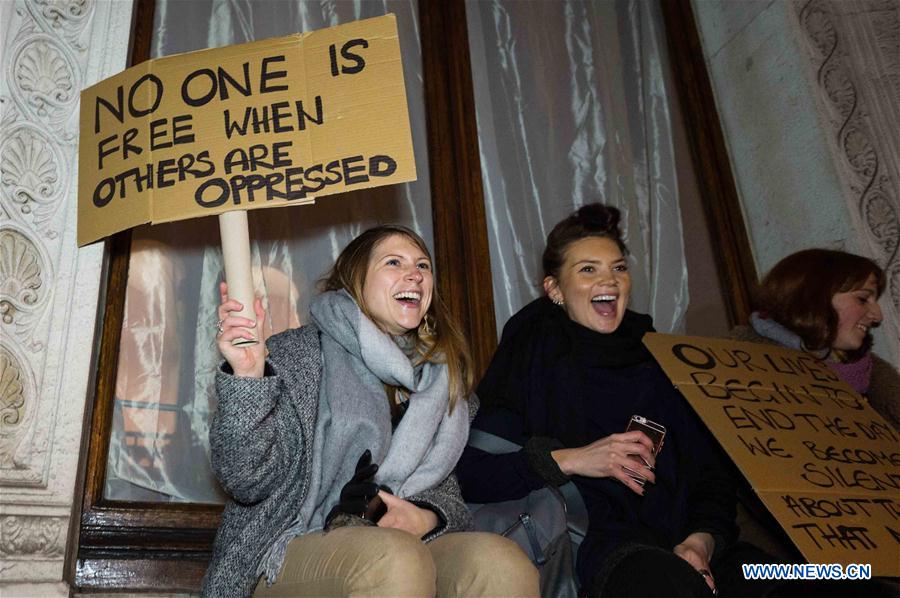BEIJING, Jan. 31 (Xinhua) -- The recent temporary entry ban imposed by U.S. President Donald Trump on refugees and citizens from seven Muslim-majority countries has been rejected by traditional U.S. allies.
MPs (members of the Parliament) in Britain's House of Commons voted unanimously after an emergency debate Monday to call on Trump to repeal his travel ban on Muslims.
More than 1.5 million people have signed a petition to the British Parliament saying Trump should not be invited to make an official state visit because it would cause embarrassment to Queen Elizabeth.
Under an executive order signed by Trump on Friday, refugees from all over the world will be suspended from entering the United States for 120 days while all immigration from so-called "countries with terrorism concerns" will be suspended for 90 days.
Countries included in the ban are Iraq, Syria, Iran, Sudan, Libya, Somalia and Yemen. The total population from these countries exceeds 130 million.
British Prime Minister Theresa May's office said Sunday that the minister would interfere if the decision affected British nationals, stressing, "we do not agree with this kind of approach."
German Chancellor Angela Merkel on Monday slammed the U.S. ban.
Anti-terrorism efforts should not justify general suspicion against a specific group of people, Merkel told a press conference prior to her talks with visiting Ukrainian President Petro Poroshenko.
"The essential and also resolute fight against terrorism in no way justifies general suspicion against people of a specific faith, in this case people of the Muslim faith or people of a certain background," she said.
"This approach, in my view, contradicts the basic tenets of international aid to refugees and international cooperation," the chancellor said.
Trump's entry ban was also rejected by French Foreign Minister Jean-Marc Ayrault, who emphasized that "welcoming refugees who are fleeing war is part of our duty."
French President Francois Hollande on Saturday warned Trump about the economic and political consequences of a protectionist approach, urging him to respect the principle of accepting refugees.
In a telephone conversation, Hollande said that "faced with an unstable and uncertain world, withdrawal into oneself is a dead-end response."
Moreover, the Dutch government declared late Sunday it rejects the Trump order and asked the United States for clarification.
Dutch Foreign Minister Bert Koenders issued a joint statement with his German counterpart, Sigmar Gabriel, saying that the two countries' embassies in Washington "are urgently examining the consequences of the U.S. executive order for our citizens and residents with a double nationality."
"We are determined to protect the rights of our citizens and residents, and will discuss swiftly within the European Union (EU) the necessary steps," the statement said.
Canadian Prime Minister Justin Trudeau also voiced his disagreement on the issue.
"To those fleeing persecution, terror and war, Canadians will welcome you, regardless of your faith. Diversity is our strength," Trudeau tweeted Saturday.
Governments of Finland, Iceland also expressed the position that the U.S. move is unacceptable.





